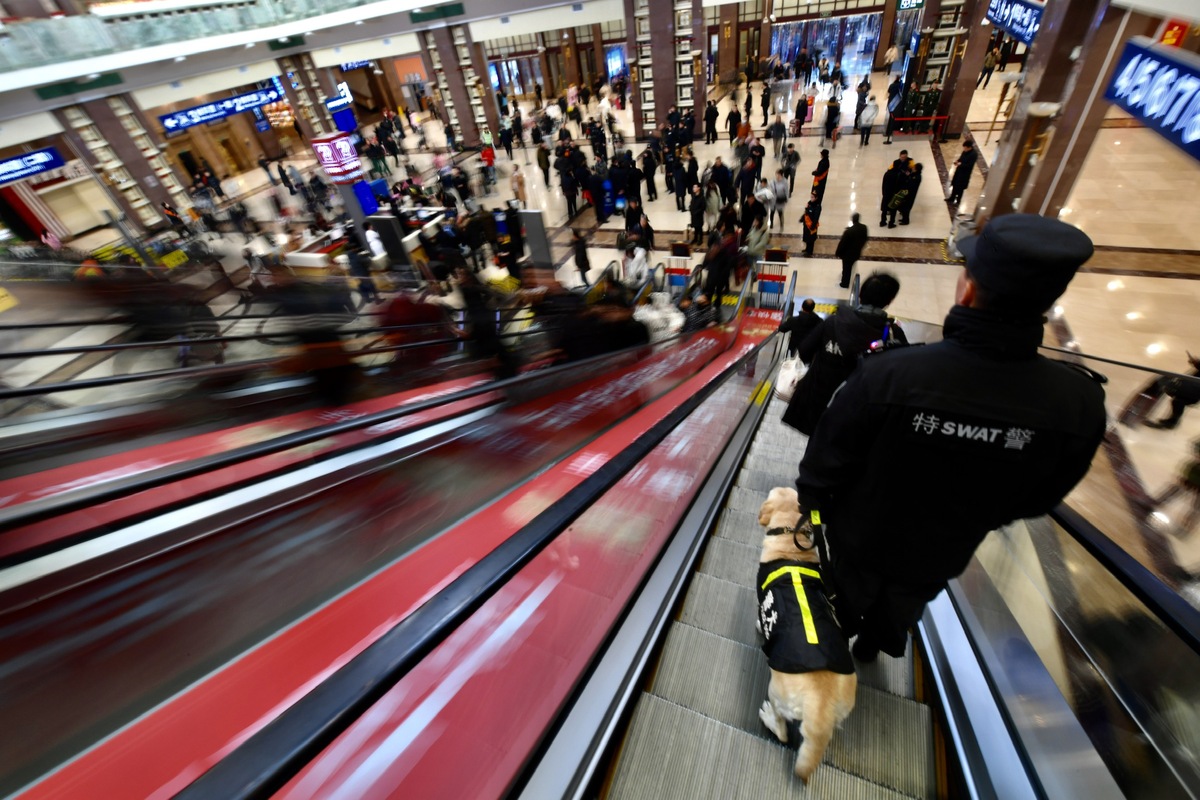Hounding criminals
By YANG ZEKUN | China Daily | Updated: 2020-10-06 09:20

Training police dogs is more difficult-and dangerous-than many people realize. But it's worthwhile for the officers who work with them and the public they protect.
Being pounced on and bitten by an aggressive dog that weighs over 40 kilograms is a nightmare for most people. But it's part of a day's work for police officer Han Siyu.
The 38-year-old Beijing native feels excited when his canine shows such ferocity. It means the animal is one step closer to assisting in the field.
The Beijing Municipal Public Security Bureau criminal investigation corps canine detachment officer has trained police dogs to attack since 2004.
He has been bitten numerous times. But being bitten enables him to test the force and technique of the dogs' attacks.
"I've loved dogs and dreamed of being a police officer since childhood," he said.
"So, I chose to study in the police-dog program when I underwent training in 2001."
Han started to work in the bureau's canine-training base in Beijing's Daxing district soon after graduating from the police academy.
He raised a dog during his last year at the academy and took the animal to the training base soon after graduating from the academy.
About two months later, his dog experienced hip problems that prevented it from undertaking intensive drills.
It was a huge blow for Han to see his first dog weeded out just when he was about to finish its training.
Han took charge of his second canine in 2004.
The training base imported a batch of pedigreed dogs from Germany that year.
One was kept in a cage for weeks without anyone to train it. Han decided to try. The 1-year-old canine had previously bitten four police officers.
"I prefer to train fierce dogs. Training an overly docile one is boring," he says.
Han said the dog, named Baozi, was pretty hostile about leaving his original trainer.
Han spent about half of his monthly salary of around 900 yuan ($133) to buy meat, bones and treats. After several months, the animal was amenable to interacting with him.
Then, Han put a muzzle on the animal and took it out of the cage for the next step.
"Training a dog requires a lot of patience and skill. First, I must let it know I won't hurt it. Then, I must make the dog aware that I'm his new trainer and rank above it in the hierarchy," he said.
"It took me about a year to build trust with Baozi through grooming and feeding him. Then, I started to train him to follow my commands."
Police dogs in other programs, such as explosives and drug detection, usually have a fixed master, who trains them from the beginning and takes the dog to do fieldwork. However, dogs in the "attack-and-bite" program need more than one trainer.
























